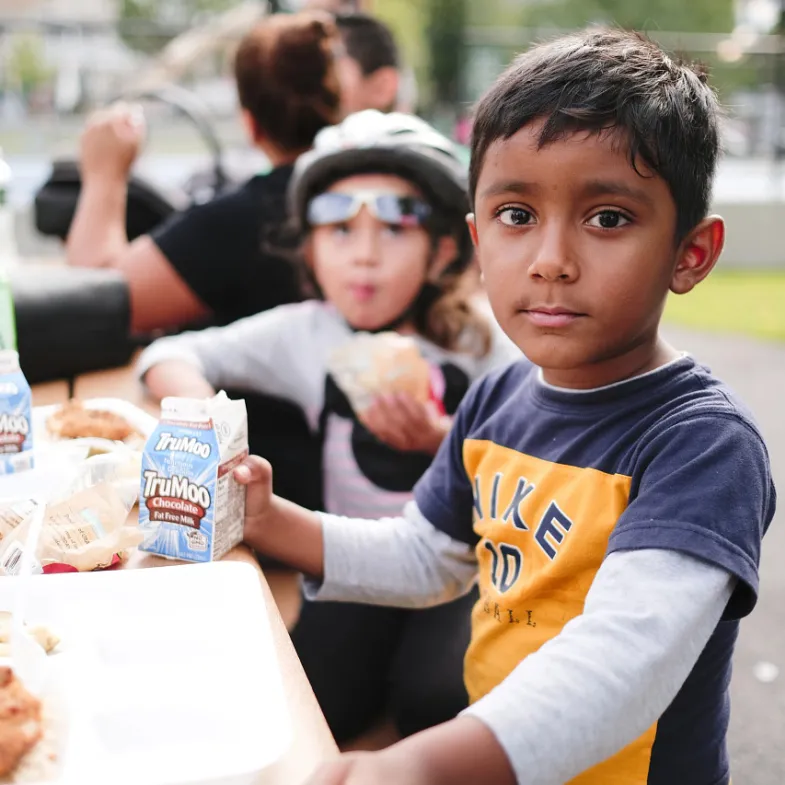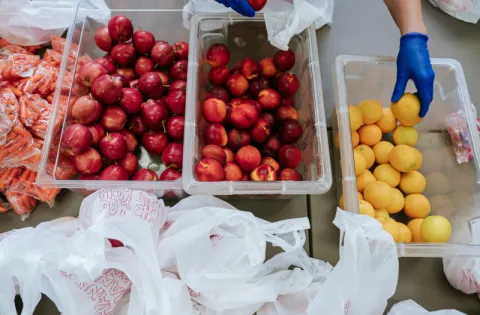UPDATE (July 15): Since this blog post was first published, the Keep Kids Fed Act was passed - thanks in no small part to the many No Kid Hungry supporters & advocates who spoke up on behalf of children - which helps with some of the barriers outlined here.
When most of us think about school break during summer, we probably picture carefree outings with family and friends and other fun activities. But how many of us think about hunger? It probably doesn’t come to mind, and yet hunger is a reality for many children during this time of year.
The national summer meals program alleviates some of the worries that families often face when their children no longer have access to free or reduced-price meals during the academic year. However, the summer meals program comes with barriers that schools and communities deal with on a regular basis.
Before the pandemic, only 1 out of every 7 kids who may have needed free summer meals were actually getting them. Why? Barriers like restrictions on when and where meals can be served, transportation issues, adverse weather conditions, limited operations based on how many kids qualify for free or reduced-price school meals, and confusing regulations that discourage organizations from participating.
This changed when the pandemic hit. A system of child nutrition waivers gave schools and organizations a lot more flexibility to get the job done. They got rid of red tape. They allowed parents to pick meals up to take home. They allowed more sites to open in more areas. As a result, the number of summer meals served more than doubled across the country.
But Congress is allowing these waivers to expire this summer. This means site closures, more red tape, and strong restrictions about where and when kids can eat. According to new estimates from No Kid Hungry, this means kids could miss out on as many as 95 million meals this summer.
How Communities Are Hurting
“Specifically for us, we’re already having challenges with our vendor,” said Eugenie Sellier from Feeding Alabama. “They’re just at capacity because they’re having staff shortages and they just can’t hire people. And on top of that, with increasing food costs and transportation costs, they’re just at capacity where we can’t add any more sites.”
“It’s not just during pandemics that… people can’t come to pick up food,” said Frances Montoya-Gatewood, food service director at Vaughn Next Century Learning Center in California. “There are travel challenges. People have houses burned down. Other tragedies. We were able to service those challenges through pandemic waivers and USDA waivers and things like that, that we wouldn’t have been able to do otherwise.”
The number of summer meals served in July 2020 was nearly triple the number served in July 2019. And even once communities began re-opening in 2021, the number of summer meals served in July 2021 was still double the number served in 2019.
Unfortunately, these game-changing child nutrition waivers are set to expire on June 30, which will diminish a lot of progress that’s been made. Without the authority from Congress to extend these waivers, programs and sites will lose their flexibility, limiting the number of summer meals served. As school and community sites face future uncertainty due to constraints on capacity, planning, supply chain, and staffing, supporting No Kid Hungry is more important now than ever.
Children should experience summer joy, not summer hunger.
Ways to Help
Act. Share the full report with your Member of Congress and urge them to reinstate the waivers that help so many more kids get the food they need.
Donate. Just $10 can help provide up to 100 meals for hungry kids. No Kid Hungry works with schools, community organizations, and local leaders across the country to connect kids to the food they need. Your generous donations will help end summer hunger for kids across the country.
Spread the Word
With so many sites closing this year, many families will need a hand with information about where to find meals for kids. No Kid Hungry is operating a texting service to help. Families and community leaders can text ‘FOOD’ or ‘COMIDA’ to 304-304 for information.



